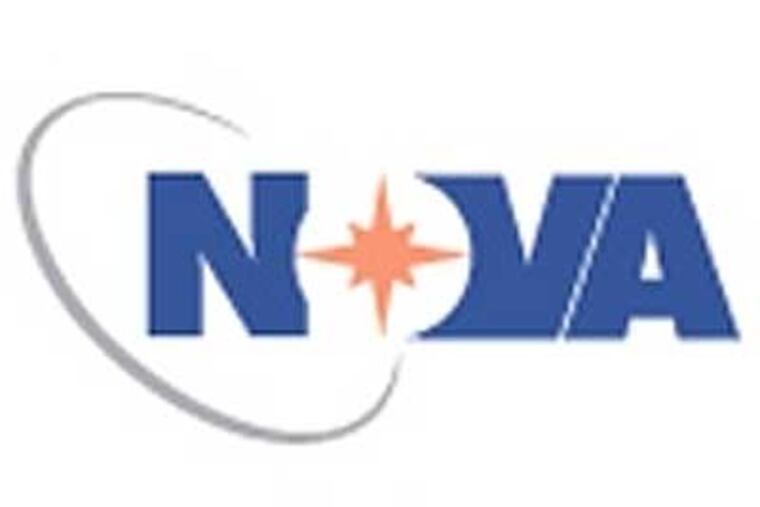Court case shows complexity of Nova Financial's demise
The lineup of parties interested in the bankruptcy of Nova Financial Holdings Inc. provides a guide to the calamitous recent history of the defunct Berwyn banking firm.

The lineup of parties interested in the bankruptcy of Nova Financial Holdings Inc. provides a guide to the calamitous recent history of the defunct Berwyn banking firm.
The list of entities that have filed appearances in the case includes investors in Nova who have demanded their money back, an insurance brokerage that had planned to merge with Nova, and a borrower who says she should not have to pay back a $3 million line of credit from Nova.
Linking all of the overlapping interests is Barry Bekkedam, a former Radnor investment manager.
Bekkedam closed his firm, Ballamor Capital Management, in early 2010 after investing $30 million of client money in Scott Rothstein's $1.2 billion Florida Ponzi scheme, which collapsed in the fall of 2009.
Looming in the background is the Federal Deposit Insurance Corp., which seized Nova Bank on Oct. 26 in what was the Philadelphia region's biggest recent bank failure. The FDIC estimated its loss on insured deposits at $91.1 million.
Nova's failure, after years of losses, has left little to fight over in bankruptcy court beyond a directors' and officers' liability insurance policy worth an estimated $3 million to $5 million, money that will also be used for the legal defense of bank officials.
A meeting scheduled for Friday in West Chester offers a chance for Nova's would-be creditors to grill a company official on how much money Nova Financial could possibly still have to pay their alleged claims.
Nova was founded in 2002, when its chief executive, Brian M. Hartline, and his Collegeville neighbor Bekkedam organized investors to buy USABancShares.com Inc.
Bekkedam, a former Villanova University basketball player, who now lives in Hobe Sound, Fla., became chairman of the new holding company, a position he held for several years.
About 30 of Bekkedam's former clients controlled about half the Nova shares, which were not publicly traded, according to an April deposition by Hartline in a lawsuit involving Hilary G. Musser, the former wife of Main Line investor Warren V. "Pete" Musser and a former Bekkedam client.
Hilary Musser and Nova have been embroiled in countersuits over a $3 million line of credit Musser took out at Nova at Bekkedam's urging, her lawsuit says. The lending relationship was messy. Ballamor paid a fee to Nova to secure the loan at a lower interest rate than the bank would have offered otherwise, according to court documents.
Musser's wide-ranging July lawsuit against Nova alleged that Nova breached its fiduciary duty and committed fraud in concert with Bekkedam.
"It is my position that Nova Bank should be writing me a check," Musser said in a deposition.
Bekkedam's main selling point was finding investments that generated significant income. A downside was that the investments could not easily be sold. That turned into a disaster in 2008 when real estate investments went south and markets froze.
Clients rained their frustrations on Bekkedam. Musser wrote in a 2009 e-mail about her financial plight: "I can't live on 200,000 income plus child support, it won't even cover one of my mortgages."
Musser's overlapping ties to Nova and Ballamor were not the only ones to disintegrate in bitterness.
Marc H. Smith and Thomas A. Schirmer, owners of Delaware Valley Financial Group, an insurance brokerage and investment advisory firm in King of Prussia, were Ballamor clients who lost money in the Rothstein Ponzi scheme. Rothstein was a Fort Lauderdale lawyer who is serving a 50-year sentence for fraud involving investments in fake legal settlements.
Even before that debacle, Smith's and Schirmer's deal to sell their company to Nova had fallen apart in the spring of 2009. Hartline, Bekkedam's partner, said Nova "never got approval from the regulators to close the transaction" because Nova was too weak financially.
A group of investors demanding their money back contends that their investment in Nova was contingent on the completion of the Delaware Valley deal. At least one investor alleged that Nova lent him the money to buy stock.
Delaware Valley has filed notice as a creditor in Nova Financial's bankruptcy. Delaware Valley's attorney is Alan S. Fellheimer, who founded Pennsylvania Business Bank and sold it to Nova for $11 million in November 2008.
at 215-854-4651 or hbrubaker@phillynews.com.